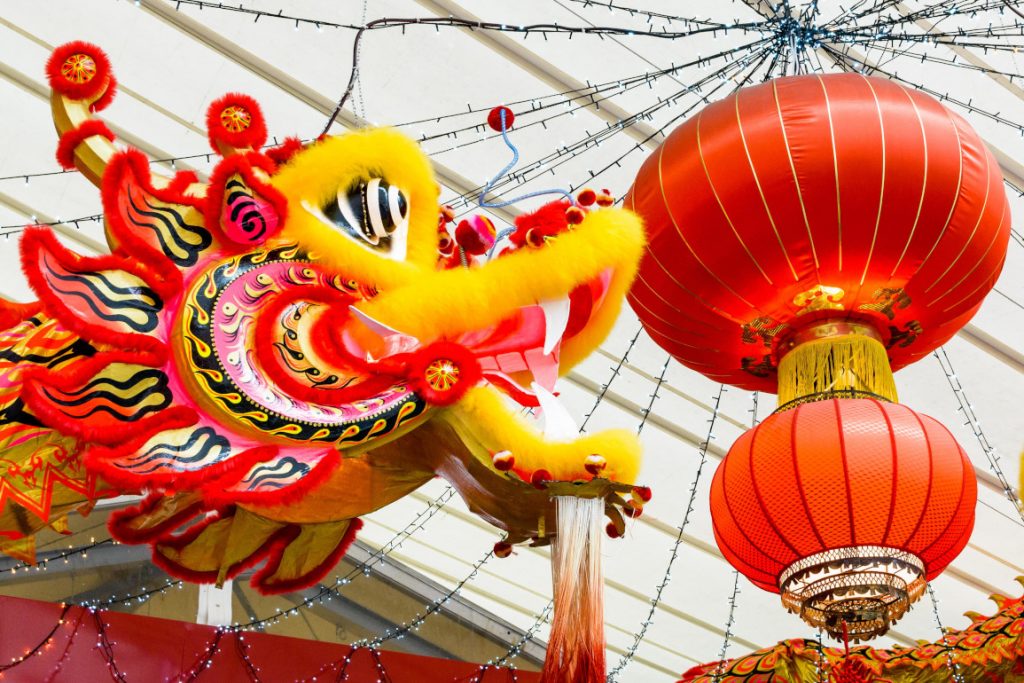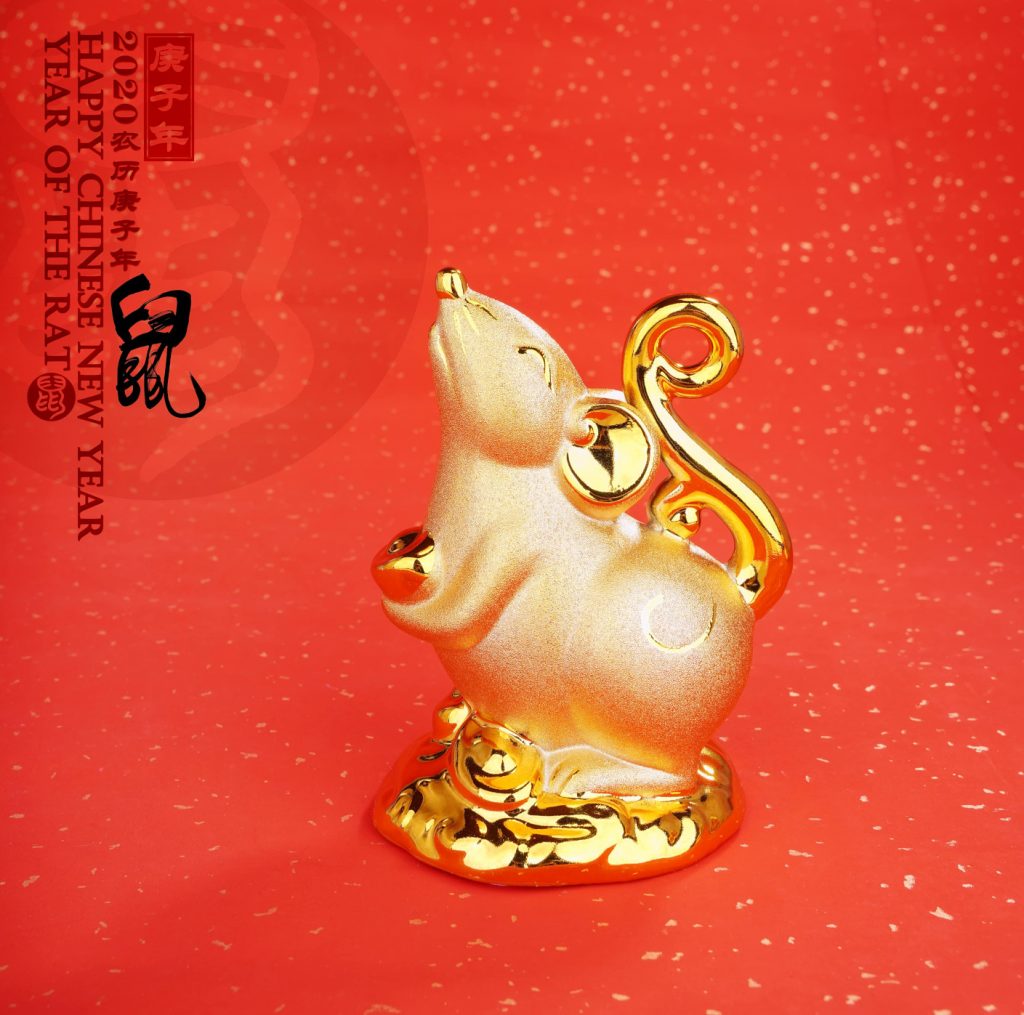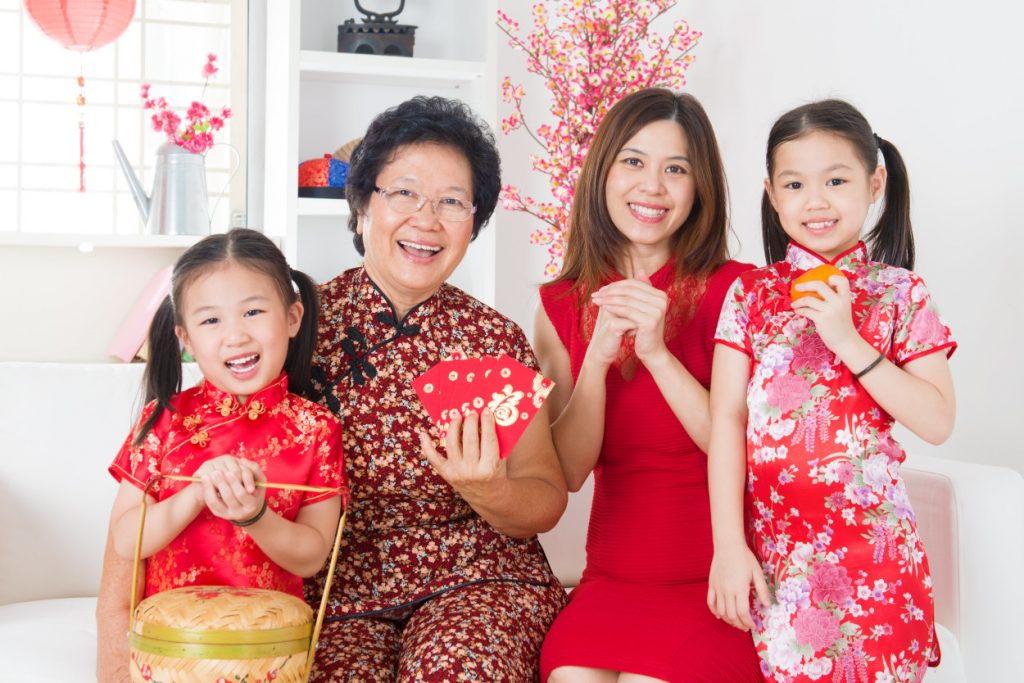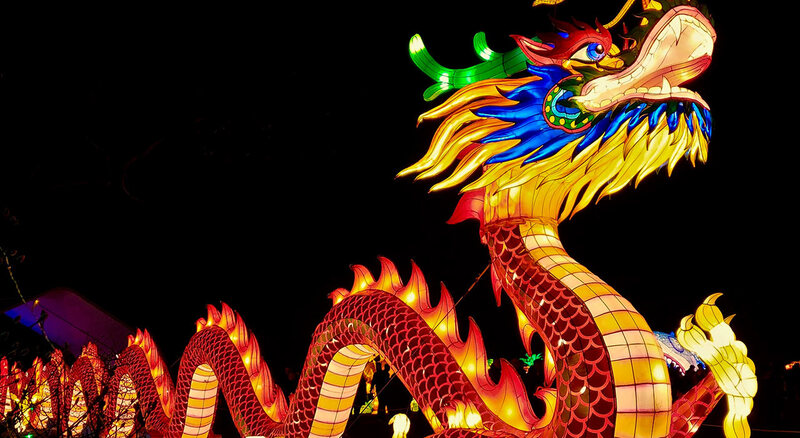15 Ways to Wish Someone “Happy New Year” in Chinese

So you’d like to know how to say “Happy New Year” in Chinese?
Then this is the article for you!
The most common way of saying “Happy New Year” in Chinese is 新年快乐 (xīnnián kuàilè). But there are lots of other phrases you can use to join in the Chinese New Year festivities too.
So, I’ll show you 15 phrases you can use to wish someone a “Happy New Year” in Chinese.
First, a quick note on terminology. In English, we call it the “Chinese New Year” – 新年 (xīnnián). But Chinese people call it the “Lunar New Year” – 农历新年 (nónglì xīnnián) or the “Spring Festival” – 春节 (chūnjié).
Before we get into the article, if you are interested in learning Chinese yourself, you should check out my absolute favourite resource for learning Chinese, ChineseClass101.
Every time I refresh my Mandarin, this has been by far my favourite resource, since it’s a podcast style learning resource that covers many aspects of the language much better than traditional courses do.
It also tackles the issue of listening comprehension better than literally anything else out there, since its catalogue of lessons eases you in with simple lessons at first that get progressively harder, and you can listen to them for a huge range of topics better suited to your hobbies and interests.
They have a free option for anyone who wants to test them out, based on just their limited recent episodes, but exclusively for Fi3M readers, you can get 20% off if you sign-up for any of their subscriptions, which allow you to access their full catalog of many hundreds of lessons, using the code FLUENT3.
I highly recommend this to all Chinese learners!!
When is Chinese New Year?
The date of Chinese New Year changes every year, so to answer “when is Chinese New Year celebrated?” is a bit tricky.
Every year, there is a window between January 21st and February 20th into which the Chinese New Year celebrations fall.
The New Year holidays are 7 days long, but the celebrations usually take up to 2 weeks – and that’s how long Chinese New Year lasts.
Chinese people also refer to their New Year as the Spring Festival. That’s because shortly after they say goodbye to the old year, they welcome spring in with the new Lunar Year.
Rats, Dogs and Monkeys – What is the Culture of Chinese New Year like?

Each year in the Chinese calendar has an animal sign connected with it, and the animal is assigned as a symbol for the whole of the following year.
So what is the meaning behind this tradition?
There are 12 animals in Chinese zodiac: Rat, Ox, Tiger, Rabbit, Dragon, Snake, Horse, Goat, Monkey, Rooster, Dog and Pig. They are all considered lucky in different ways and many Chinese people believe that their traits are passed on to people born in the year of each animal.
Chinese people then traditionally believe each year will carry the animal’s trait. The idea is it will ultimatelyl bring them happiness, money, or wisdom, for example.
How Native Chinese Speakers say “Happy New Year”

Chinese New Year greetings are often associated with wishing wealth and health.
“Happy New Year” on its own might sound a bit dull, so if you want to impress your Chinese friends, mix and match the phrases I’ve listed below.
Also, you can add 祝你 (zhù nǐ, “Wish you”) to the beginning of each way of saying “Happy New Year”. It adds an additional wish of health, prosperity, luck, happiness and wealth. It’s not wrong to omit it; it’s completely up to you whether you use it or not.
Here’s how to write and how to say “Happy New Year” in Chinese:
1. 新年快乐 (xīnnián kuàilè) – “Happy New Year”
Ask any Chinese speaker how to say “Happy New Year” in Chinese and I guarantee this will be their first answer.
The direct translation of “Happy New Year” from the Chinese characters is exactly what it sounds like. 新年 (xīnnián) means “New Year” and 快乐 (kuàilè) is “happy”.
快乐 (kuàilè) can also be translated as “joyful” or “cheerful”. But be aware about the meaning of this particular “happy/joyful”. You wouldn’t want to use 快乐 to express your own happiness; in that case you’d say 高兴 (gāoxìng, “happy, glad”).
So 新年快乐 (xīnnián kuàilè, “Happy New Year”) is your go-to when wishing Happy Chinese New Year in Mandarin.
Let’s now have a look at other expressions and greetings. I recommend learning these if you want to sound like a more native:
2. 春节快乐 (chūnjié kuàilè) – “Happy Spring Festival”
In Western culture, New Year celebrations are generally not connected to welcoming the start of spring.
But Chinese New Year (the lunar new year) starts later than the Western New Year (the solar new year). So at the time of the Chinese New Year, spring is just around the corner.
That’s why the New Year is usually referred to as the “spring festival” in Chinese.
To wish someone a Happy Spring Festival, you say 春节快乐 (chūnjié kuàilè). In this expression 春节 (chūnjié) means “spring festival” and, 快乐 (kuàilè) means “happy”.
3. 新年好 (xīnnián hǎo) – “Happy New Year”, “Good New Year”
Similar to 新年快乐 (xīnnián kuàilè, “Happy New year”), this greeting is used to, well, wish somebody “Happy New Year”.
In Mandarin, 好 (hǎo, “good”) is often added to a word or multiple words to say “hi”.
For example, 你好 (nǐ hǎo) means “hi”, but if you break it down, it is “you good”.
Imagine this: celebrations of the New Year are almost over, but it hasn’t been that long. You see your friend and to start your conversation, instead of just a simple “hi” you can use 新年好 (xīnnián hǎo, “Happy New Year”).
Yes, you say “Happy New Year”, but in Chinese, it’s just a greeting – especially if you carry on with your conversation after that.
4. 恭喜发财 (gōngxǐ fācái) – “Happiness and Prosperity”
This is how you wish someone well in the new year.
If you want to wish a Chinese person “Happy New Year”, greetings typically include longer or shorter wishes. Generally, as long as you wish happiness, money or luck, you’re good to go.
Imagine a birthday card in English: “I wish you all the best, may your special day bring you all the love, happiness and fun.”
That’s a pretty typical thing for one Chinese person to say to another, no matter what the occasion.
恭喜发财 (gōngxǐ fācái) means “happiness and prosperity”, or “I wish you happiness and prosperity (in the new year).” Or “May you have a prosperous year!”
5. 恭贺新禧 (gōnghè xīnxǐ) – “Happy New Year”
恭贺 (gōnghè) is “to congratulate”, and although it’s quite a formal expression, it’s not uncommon to use it in a regular conversation.
新 (xīn) means “new”, but in this context it’s “New Year”.
禧 (xǐ) can be translated as “fortune”, “happiness” or “jubilation”.
Don’t worry too much about the exact translation of each character. The expression, as many others, lost its overly formal meaning over time and is now used as “Happy New Year” or, similar to the previous one, “May you have a prosperous/happy year!”
6. 岁岁平安 (suì suì píng'ān) – “I Wish You Peace”, “May You Always Have Peace Year After Year”
岁 (suì) is a measure word for years; when repeated twice, it means “year after year” or “always”.
You might know the word 平安 (píng'ān, “safe”) from a common phrase 一路平安 (yīlù píng'ān), which means “Have a safe trip”.
But when used in a New Year’s greeting,the meaning changes slightly. More than “safe”, it means “peaceful” – “May your year(s) be peaceful”.
7. 过年好 (guònián hǎo) – “Pass the Year Well”
This is a popular way of saying “hi” during Chinese New Year celebrations.
As I mentioned, 好 (hǎo, “good”) at the end of the phrase signals a greeting in Chinese, but in this case, it actually has the meaning of “good” or “well”.
When you see 年 (nián, “year”) in a phrase, chances are, it’s a Chinese New Year’s greeting.
过 (guò) is “to pass”, so this sentence means “Pass the year well” or “Have a good year”.
When learning Mandarin, as with other languages, it’s always good to know what each word or character means. But as I’ve said before, don’t worry too much about the meaning behind each character. Over time, a lot of phrases have lost their original meanings, and now Chinese people barely think of them and rather use them as a sign of politeness.
8. 万事如意 (wànshì rúyì) – “Best Wishes”
You’ll often hear 万事如意 (wànshì rúyì) during the Chinese New Year. It means “best wishes” or “I hope everything goes well”. Another translation could be “I wish you all well”.
万 (wàn, “ten thousand”) is not commonly used in its true meaning. Most likely, you’ll find it as “loads” or even “everything”.
事 (shì) means “matter” or “thing”. See where the phrase goes? In all your matters, everything you do… may it go well this year!
And lastly, 如意 (rúyì) is often used together, as “according to one’s wishes” or “how you want”.
As in English, you can also use the phrase “best wishes” when celebrating birthdays, promotions or other happy occasions.
9. 财源广进 (cáiyuán guǎng jìn) – “I Wish You Prosperity”
This particular wish can be translated as “I wish you prosperity/fortune” or “May you have lots of sources of income”.
Money plays a big role in Chinese New Year wishes and celebrations.
Apart from giving the 红包 (hóngbāo, “red envelope”) that mostly children receive at New Year, Chinese people also like to wish each other money, prosperity and success in the upcoming year.
Character by character, 财 (cái) means “fortune”, “wealth” or even “income”.
源 (yuan) is “source”, 广 (guǎng) means “extensive” or “numerous” and 进 (jìn) is “to enter”.
10. 新春大吉 (xīnchūn dàjí) – “I Wish You Luck in the New Year”
As Chinese celebrate not only the 新年 (xīnnián, “new year”), but also a 新春 (xīnchūn,“new spring”), you won’t be wrong to use either in your wishes.
大吉 (dàjí) translates as “big/a lot of luck”, so this phrase means “May you have a lucky new spring”.
5 Bonus Phrases You Can Use to Say “Happy New Year” in Chinese
Here are five more phrases you can use during the Chinese New Year celebrations:
- 给您拜年了 (*gěi nín bàiniánle) – “Happy New Year”
- 大吉大利 (dàjí dàlì) – “Great luck, great profit”, “I wish you luck and wealth”
- 鼠年行大运 (shǔ nián xíng dà yùn) – “Happy Year of the Rat”*
- 恭喜发财,红包拿来 (gōngxǐ fācái, hóngbāo ná lái) – “Wish you happiness and prosperity; give me the red envelope”
- 心想事成 (*xīn xiǎng shì chéng) – “Wish your dreams come true”
Ready for Chinese New Year?
New Year in China is a celebration of a new spring arriving and luck in the coming year with all the qualities its assigned animal has.
Whether it’s with friends, family or a neighbor, Chinese people love to wish each other lots of good things in the new year. They appreciate health, luck and a fortune in the bank account (or a red envelope).
Thanks to this guide you’ll never be short of New Year’s wishes and phrases.
Here’s wishing you 新年快乐 (xīnnián kuàilè). Happy New Year!
Now that you’ve mastered Chinese New Year wishes, you can level up your Chinese by checking out our guide to ordering in a Chinese restaurant and learn some useful phrases and tips. You can also learn about Mandarin family vocabulary.



Social